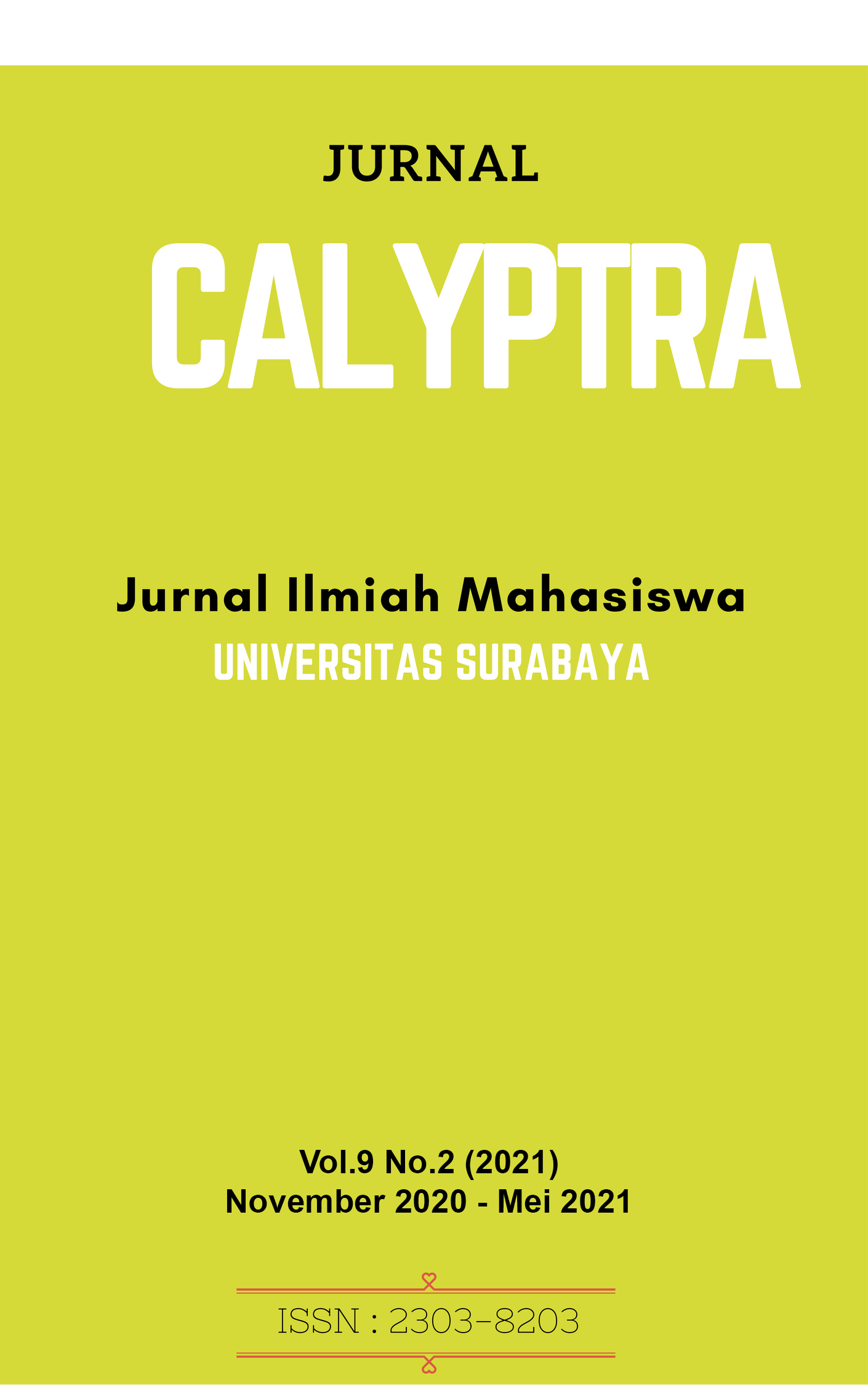HUBUNGAN SELF‐COMPASSION DAN WORKFAMILY CONFLICT PADA IBU PEKERJA
 Abstract Views:
835 times
Abstract Views:
835 times
 PDF Downloads:
627 times
PDF Downloads:
627 times
Abstract
Abstract ‐‐ The dual role of women must be responsible in the family and work triggers a conflict called work-family conflict. The existence of these conflicts can be finalized by an internal capability called self compassion This study aims to examine the relationship between self-compassion and work-family conflict in working mothers. Respondents in this study amounted to 100 women with the criteria of being married, and at least having 1 child who still lives together. Data collection was carried out by quantitative methods using self-compassion quistionaire (SCQ) and the Indonesian version of work-family conflict quistionaire (WFCQ). The results showed that there was significant negative relationship between self-compassion and work-family conflict (β= -.0669; R²= 0.448; p < 0,05). This means, that self-compassion associated with work-family conflict by women factory workers and vice versa. In addition, the results this study also showed that the contribution of self-compassion is an individual internal factor that contributes to workfamily conflict in woman factory workers.
Keywords: self‐compassion, work‐family conflict, working mothers.
Abstrak— Peran ganda perempuan yang harus bertanggung jawab dalam keluarga dan pekerjaan memicu adanya konflik yang disebut work-family conflict. Adanya konflik tersebut dapat diminimalisir dengan salah satu kemampuan internal yang disebut self compassion yaitu pemahaman terhadap diri sendiri untuk menerima segala kekurangannya. Penelitian ini bertujuan untuk menguji hubungan selfcompassion dan work-family conflict yang dialami oleh buruh pabrik perempuan. Responden dalam penelitian ini berjumlah 100 orang perempuan yang bekerja sebagai buruh pabrik dengan kriteria berstatus menikah dan memiliki minimal 1 anak yang masih tinggal bersama. Pengumpulan data dilakukan metode kuantitatif dengan menggunakan kuisioner Self-Compassion dan kuisioner work-family conflict versi Indonesia. Hasil penelitian menunjukkan bahwa terdapat hubungan negatif signifikan antara self-compassion dan workfamily conflict (β= -.0669; R²= 0.448; p < 0,05). Hal ini berarti self-compassion berasosiasi dengan work-family conflict, yaitu semakin tinggi tingkat self-compassion maka tingkat work-family conflict yang dialami oleh pekerja buruh perempuan semakin rendah, begitu pula sebaliknya. Selain itu, hasil penelitian ini juga menunjukkan bahwa kontribusi self-compassion terhadap work-family conflict ialah sebesar 44,8 %. Temuan ini menggambarkan bahwa self-compassion menjadi faktor internal individu yang berkontribusi terhadap work-family conflict yang dialami pekerja buruh perempuan. Implikasi untuk penelitian selanjutnya adalah mempertimbangkan pendidikan minimum responden dan memperhitungkan waktu luang responden.
Kata kunci: self‐compassion, work‐family conflict, ibu pekerja.
Downloads
References
Mjoli, T., Dwili, M., Dodd, N. (2013). Demographic Determinants of Work‐ Family Conflict
among Female Factory Workers in South Africa. Journal of Economics, Bussiness, and
Management, 1 (1)
Greenhause, J.H., Beutell, N.J. (1985). Sources of Conflict Between Work and Family Roles.
Academy of Management Review, 10 (1), 76‐85
Carlson, D.S., Kacmar, K.M., Sstephina, L.P. (1995). An Examination of Two Aspects of Work‐
Family Conflict: Time and Identity. Woman in Management Review, 10 (2), 17‐25
Carlson, D.S., Kacmar, K.M., Williams, L.J. (2000). Construction and Initial Validation of A
Multidimensional Measure of Work‐Family Conflict. Journal of Vocational Behavior, 56,
‐27
Neff, K. (2003). Self‐compassion: An Alternative Conceptualization of A Helathy Attitude Toward
Oneself. Journal of Self and Identity, 2, 85‐101
Neff, K.D., Dahm, K.A. (2014). Self‐compassion: What it is, what it does, and how it relates to
mindfulness. Journal of University of Texas at Austin
Artiawati. (2012). Konflik Kerja‐Keluarga pada Jurnalis di Jawa dan Bali (Model Konflik Kerja
Keluarga dengan ideology peran gender, beban peran berlebihan, dukungan sosial, dan
kepribadian sebagai antesedan; rasa bersalah dana kesejahteraan psikologis sebagai
konsekuensi. Disertasi, tidak dipubliksan. Bandung: Program Doktor Fakultas Psikologi
Universitas Padjajaran.
Bellavia, G., & Frone, M. (2005). Work‐family conflict. In J. Barling, E. K. Kelloway, & M. Frone
(Eds.), Handbook of work stress (pp. 185‐221)
Rahayuningsih, I. (2013). Konflik Peran Ganda pada Tenaga Kerja Perempuan. Jurnal Psikosains,
(2)
Allen, A.B., Leary, M.R. (2009). Self‐compassion, stress, and coping. Journal Compilation Social
and Personality Compass. University of Duke, 4 (2)
Fitriyani, L.(2015). Peran Pola Asuh Orang Tua dalam Mengembangkan Kecerdasan Anak.
Lentera Journal, 18 (1)
- Articles published in CALYPTRA are licensed under a Creative Commons Attribution-ShareAlike 4.0 International license. You are free to copy, transform, or redistribute articles for any lawful purpose in any medium, provided you give appropriate credit to the original author(s) and the journal, link to the license, indicate if changes were made, and redistribute any derivative work under the same license.
- Copyright on articles is retained by the respective author(s), without restrictions. A non-exclusive license is granted to CALYPTRA to publish the article and identify itself as its original publisher, along with the commercial right to include the article in a hardcopy issue for sale to libraries and individuals.
- By publishing in CALYPTRA, authors grant any third party the right to use their article to the extent provided by the Creative Commons Attribution-ShareAlike 4.0 International license.



